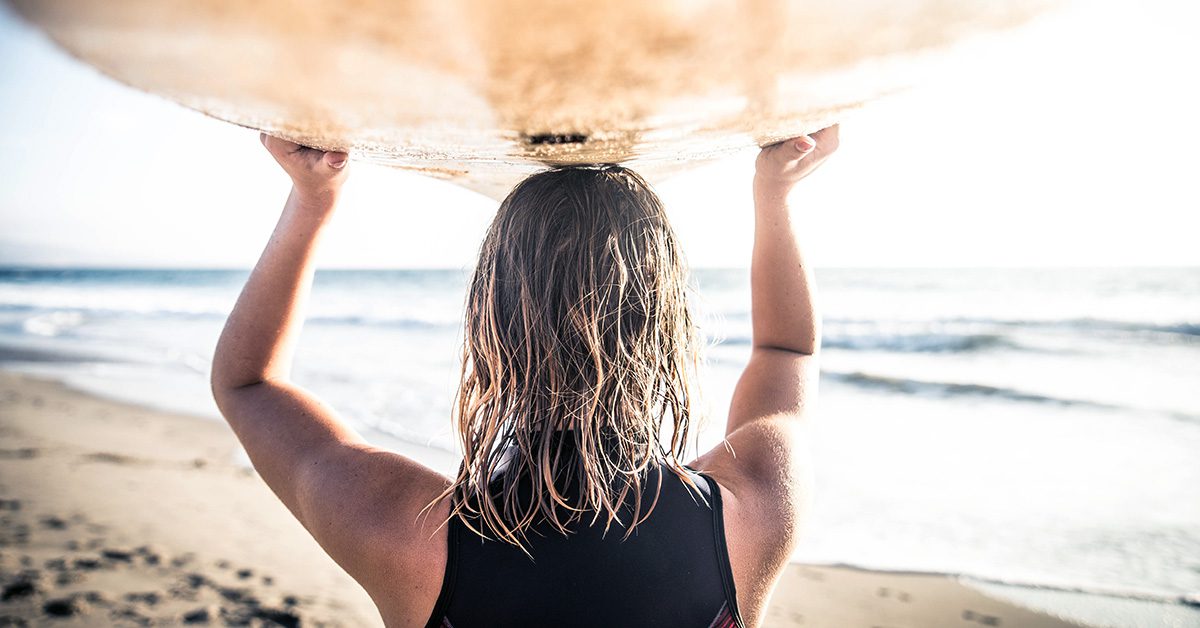What is Surf Therapy? And How Does Mare’s House Use It as Part of the Long-Term Addiction Recovery Journey?
Social connection. Establishment of a routine. Distraction from cravings. The alleviation of depression and anxiety. These are just a few of the benefits of incorporating regular exercise into an addiction recovery plan. Though more research is needed, when it comes to sobriety, regular exercise, in combination with other treatment protocols including therapy and 12-step programs, has been found to be effective in helping men and women build lifestyles that lead to long-term success.
At Mare’s House, we believe that the establishment of healthy habits is essential to lasting recovery, and exercise is at the top of the list. Combined with a wholesome diet, a supportive social network, and the development of job skills, exercise is essential to building a healthy lifestyle. To help our residents integrate exercise into their daily routine, we have an on-site exercise area and offer weekly yoga and kickboxing classes. But what makes Mare’s House truly unique among transitional living houses, is our use of surf therapy. More than just exercise, surf therapy can help foster the personal development and life skills required for a fulfilling sober life.
What is Surf Therapy?
The International Surf Therapy Organization defines surf therapy as, “a method of intervention that combines surf instruction/surfing and structured individual and/or group activities to promote psychological, physical and psychosocial well-being.” In addition to addiction, surf therapy is also used to treat disorders ranging from PTSD to autism.
Rather than being a therapy that aims to reduce the symptoms of addiction (a therapy designed to “take away” behaviors or impulses), surf therapy is developmental, meaning it is used to add, enhance and build up the new skills and habits that lead to lasting change. Surfing is effective in this way because, in addition to being an excellent form of exercise, when used in a therapeutic manner, it can also serve as a platform for emotional growth, problem-solving, and community building.
Surf Therapy is Associated with the Following Benefits:
- Community Building
- Positive Role Modeling
- Trust Building
- Engagement with Nature
- Stress Relief
- Mindfulness and Focus
- Resilience
- Patience
- Determination
- Self-Confidence
- Meaningful Connection with Others
Much like life, surfing is individualistic on one hand and community-centric on the other. This makes it an ideal pathway to helping those in recovery build the internal resilience needed to weather life’s storms, while also developing the social bonds and trust of others necessary for a satisfying quality of life. Building strength and capability through an activity that is both exciting and restorative can help young women in recovery build their self-esteem, while also helping them develop an appreciation for life without drugs and alcohol.
How Does Mare’s House Use Surfing as Part of Its Transitional Living Program?
The Mare’s House surf therapy program is run by former professional surfer and mentor Holly Beck. Residents have the opportunity to participate in weekly surf therapy sessions and more when time allows. Surf therapy is part of the Mare’s House comprehensive clinical and life-skills development program, which includes 12-step program participation, group and individual therapy, career and vocational training, health and wellness education, equine therapy, art therapy and music therapy.
At Mare’s House, all of our residents to participate in surf therapy, as it is an integral part of our program.






